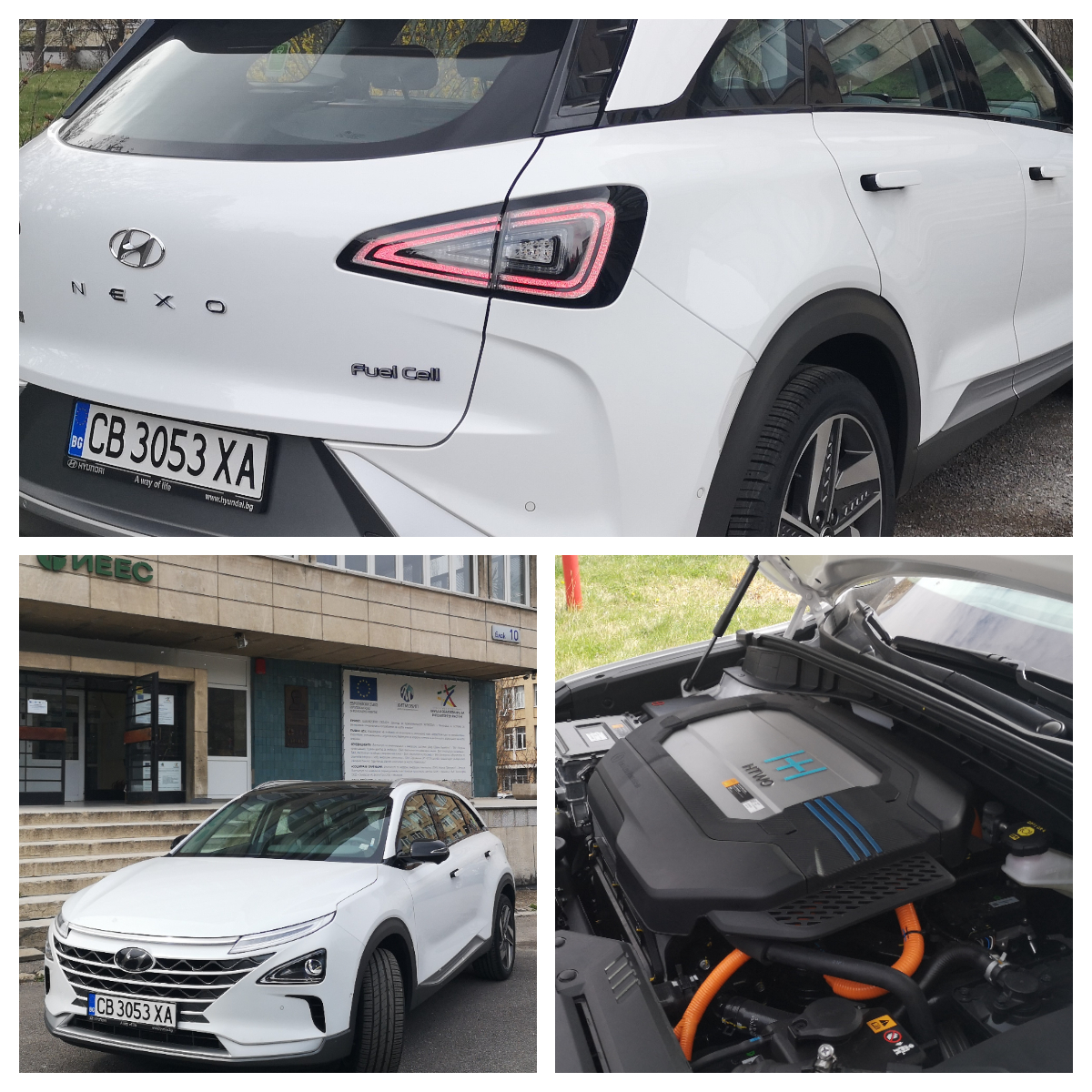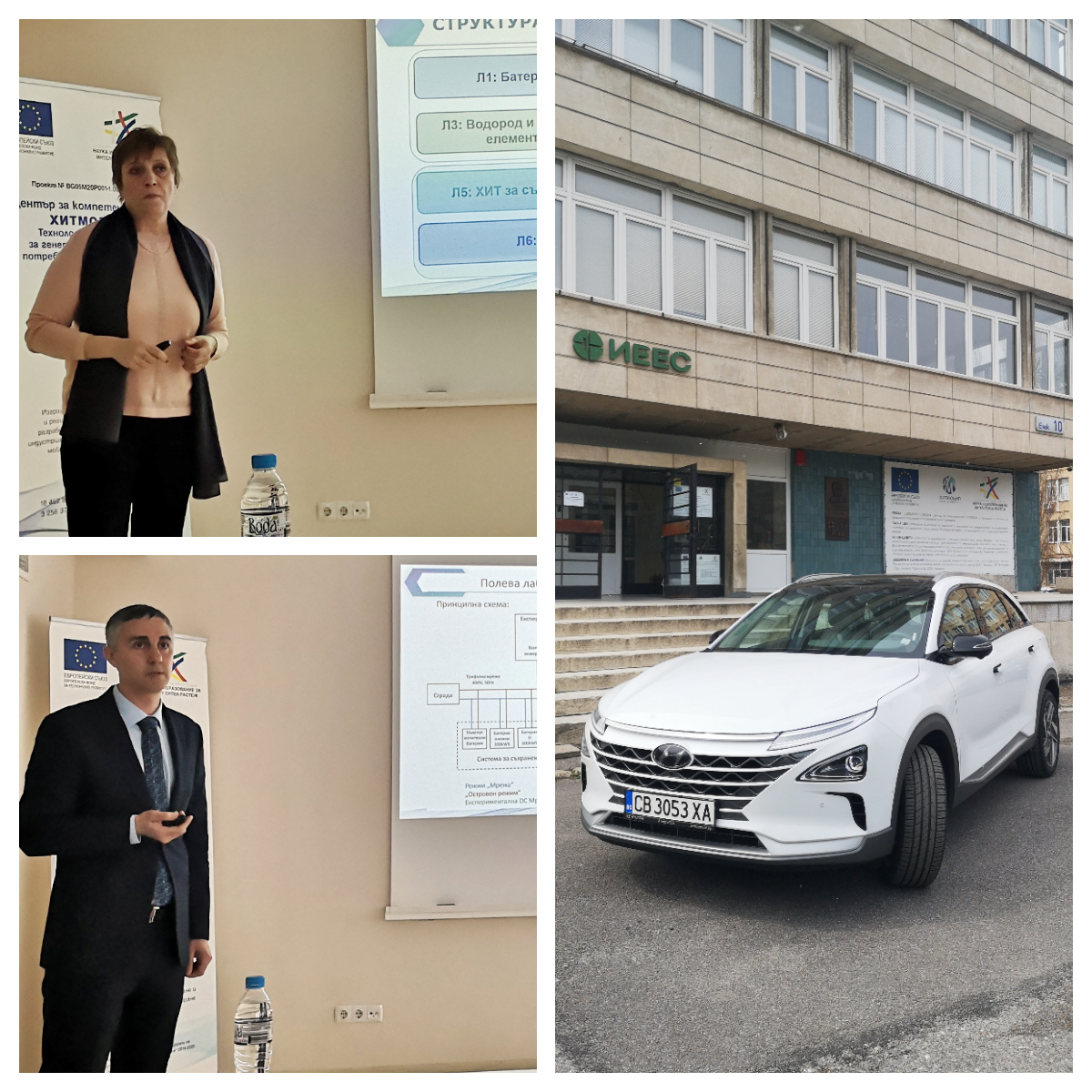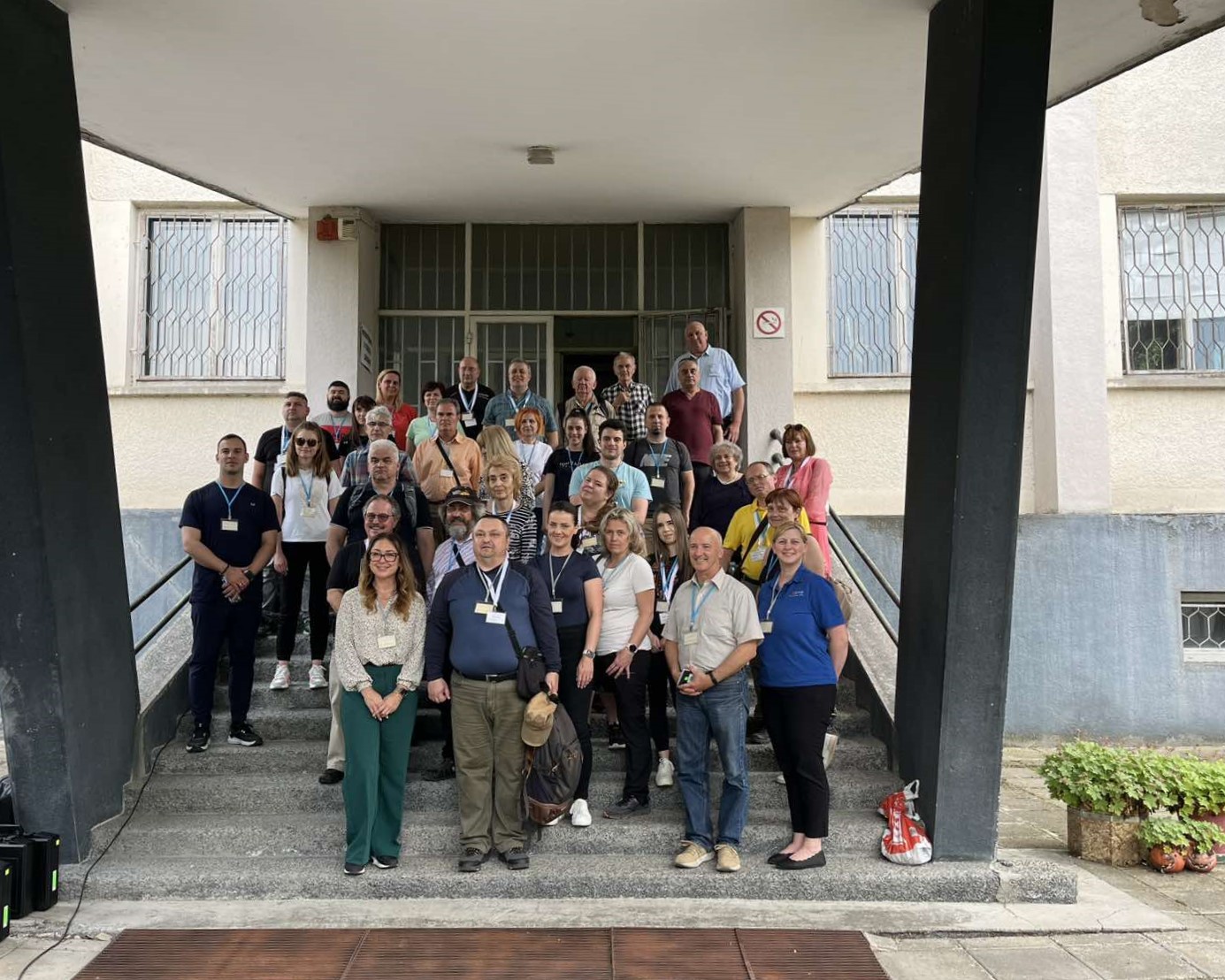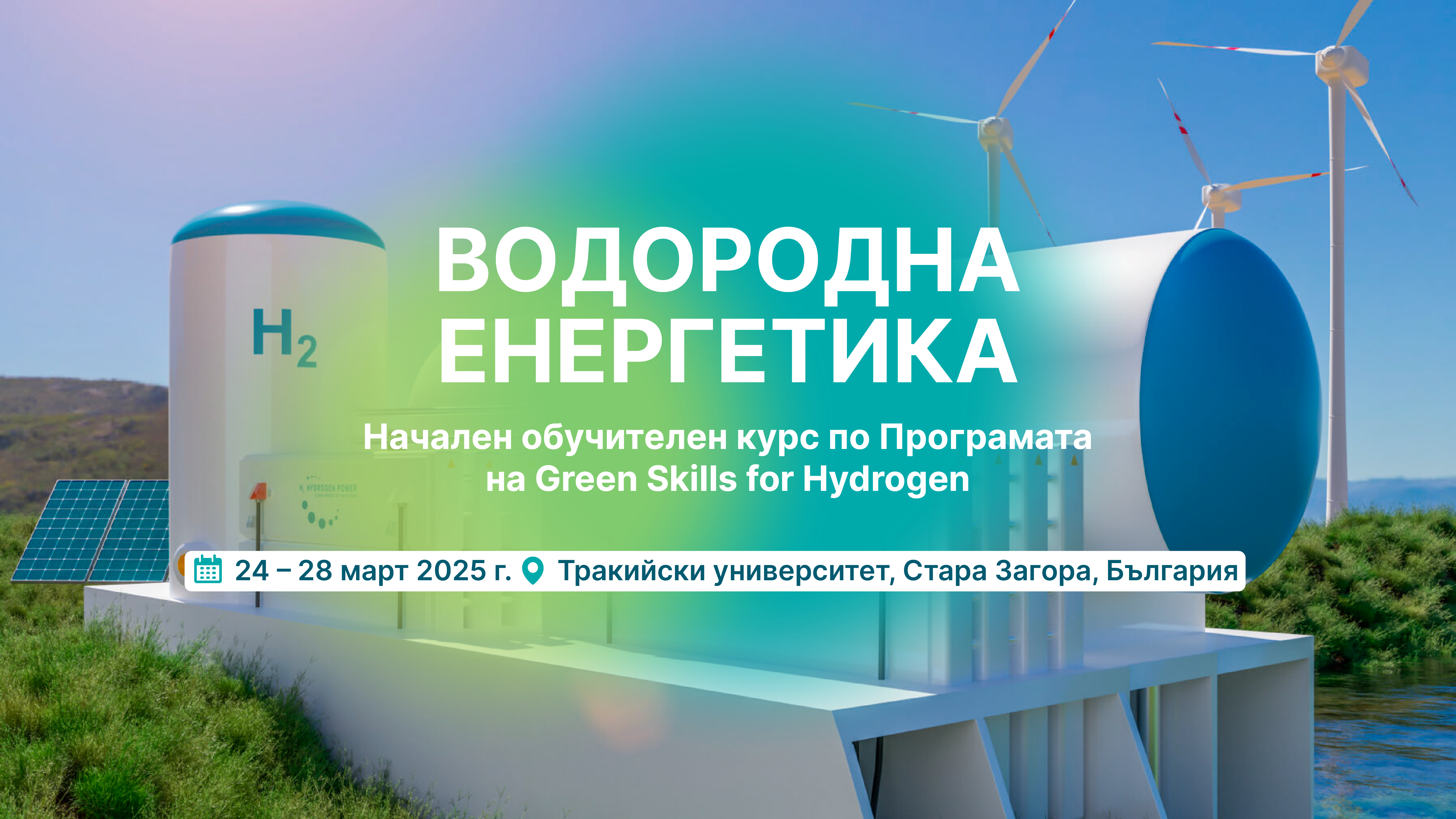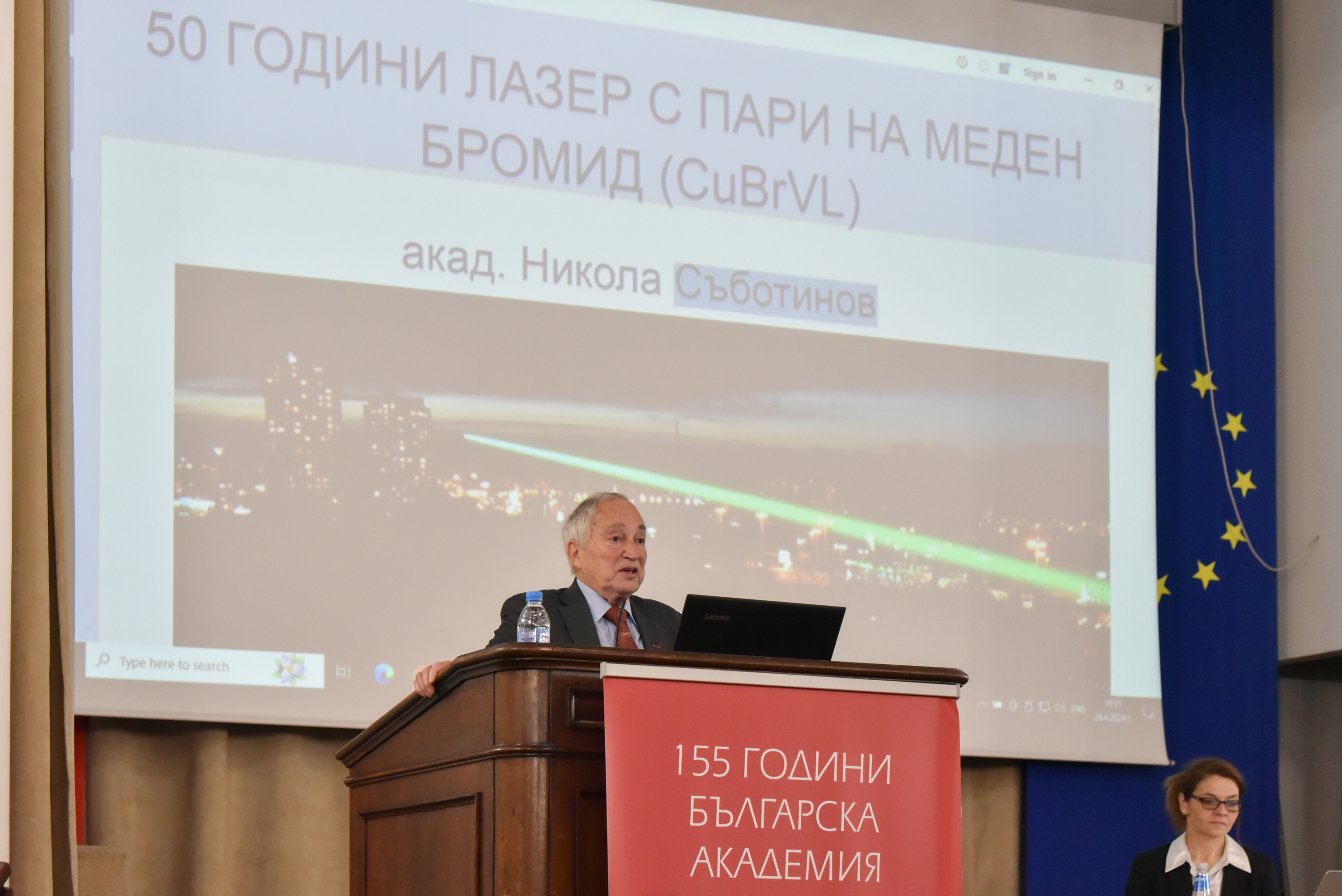Information on the development of CoC “HITMOBIL” was presented at a press conference
The registration of the first hydrogen electric car in Bulgaria is already a fact and its owner is IEES-BAS. The Hyundai Nexo electric vehicle has been purchased under a public procurement procedure for the supply and warranty support of an electric vehicle with hydrogen fuel cells required for the establishment/upgrading of the research infrastructure of Laboratory 5: “HIT for Energy Storage and Electromobility” – part of the HITMOBIL Centre of Competence project. It was presented during the interim press conference of the project held on 30 March 2023.
Powering the Hyundai Nexo is an electric motor with 120 kW of power and a maximum torque of 395 Nm. Power for driving, as well as for all the energy consumers in the vehicle, is produced by a 95kW fuel cell. The product of the electrochemical reaction in it, between the hydrogen supplied from tanks on board the car and oxygen from the ambient air, is just water.
To provide the required maximum power in dynamic mode, the car relies on a lithium-ion battery with a small capacity of 1.56 kWh and power of 40 kW. The battery is charged by the fuel cell or in regenerative braking mode when the vehicle is stopped.
The hydrogen fuel cell electric vehicle has zero emissions of both pollutants and carbon dioxide.
The hydrogen required for the Hyundai Nexo is stored in three tanks (52.2 litres each) distributed under the second row of seats and the boot floor, with hydrogen refuelling times commensurate with conventional gas-fuel vehicles. The catalogue range on a single charge is up to 660 kilometres, but a record of 887.5 kilometres was set in Australia in 2021. Torque is transmitted to the car’s wheels by the usual single-speed gearbox for electric cars. The Hyundai Nexo accelerates from 0 to 100 kilometres per hour in 9.2 seconds. Top speed is electronically limited to 179 kilometres per hour.
Among the main challenges to hydrogen mobility is the lack of charging infrastructure. Hydrogen charging station networks around the world are in the early stages of construction, and Bulgaria has no charging stations at all at the moment.
Corr. Mem. Evelina Slavcheva, Head of CoC “HITMOBIL”, briefly presented the overall progress in the implementation of the three modules in the structure of the project: Industrial Research, Experimental development, and Knowledge Management and Technology Transfer. She reviewed the capabilities of the commissioned facility and equipment in the five completed laboratories of the Centre, aimed at characterizing existing and prototyping innovative electrochemical systems (including batteries, fuel cells, photovoltaic modules, etc.) for green energy. The established infrastructure and the integration of the expertise and efforts of the scientists from the partner organisations allow them to unleash their scientific potential for innovative developments.
In laboratories 1 to 4, applied research is carried out with technology readiness levels (TRLs) 3-4, i.e. laboratory prototypes of technologies are created, proven by experiment and validated in a laboratory environment. Laboratory 5 is for experimental development and also allows for developments with higher technology readiness levels (TRL 5-6), i.e. technologies validated and demonstrated in a relative environment, such as the testing of industrial batteries, fuel cells and hybrid power systems in different operating modes.
The progress made and the difficulties in the construction of Laboratory 6 – Integrated Energy Systems were presented by its head Assoc. Prof. Dr. Blagoy Burdin. This is the largest and most sophisticated laboratory within the project which will enable research at pre-industrial scales and the implementation of a strong science-business link. It will include a photovoltaic park, a wind generator emulator, and the energy obtained from renewable sources will be stored not only in batteries of different types but also as hydrogen to power Bulgaria’s first hydrogen charging station. This will mark the beginning of the construction of a hydrogen charging infrastructure in the country.
The mobile hydrogen station is relied on to power Bulgaria’s first hydrogen electric vehicle, which has already received registration in the name of IEES-BAS, the lead organization of the CoC “HITMOBIL” project. Its first demonstration was made at the end of the press conference.
CoC “HITMOBIL” and IEES-BAS will mark the beginning of the construction of hydrogen stations for transport purposes in the country. A site for the deployment of the country’s first mobile hydrogen charging station is already under construction. Its installation will complete Laboratory 6: Integrated Energy Systems, which will allow the demonstration of hydrogen technologies for energy and transport applications and the deployment of a research programme for experimental observations on the technical parameters of hydrogen electric vehicles.


